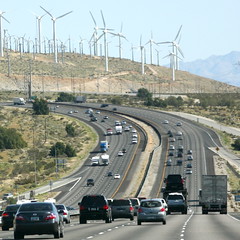By: MJ Demarco
If there was ever a case for a little less “hype-y” title for a book, this is it. I’m not sure what else I would have named it, but the title just seems like a whole bunch of get-rich-quick hype, and it kept me from reading the book sooner than I did. Which turned out to be a bit of a downer, since it’s really a good book. Demarco spends about half of the book describing his ideas on the different types of life travelers. There’s the “sidewalkers”, the “slowlaners”, and then, the “fastlaners”. Each describes a way of thinking about how we travel through our life, financially.
The “sidewalkers” are the people who subscribe to a 9-5 work life and save as much as they can in hopes that they can one day retire on a decent budget. The “slowlaners” are those that have started to break away from the 9-5 lifestyle and have some side income coming in, but they just don’t (or won’t) make the jump and get into the fast lane. The “fastlaners” are those who have made the jump to business ownership, entrepreneurship, and are making their money on their own terms.
The second half of the book is dedicated to the “fastlaners”. Demarco talks about the dynamics of earning money and how the way you make and spend your money is so important to becoming a “fastlaner”.
As someone who regularly writes about frugality, saving, and making the most of what money you do make, I have to admit that I was a bit off-put by the first half of the book. There is a large contingent of the world that will work most of their lives, save for retirement, and then enjoy the rewards of having done so. His arguement, of course, is that we shouldn’t have to work our lives away until we’re 60+ years old only to have our body break down on us and not be able to enjoy our hard-earned money in retirement. Instead, he talks about becoming a “fastlaner”, and creating your own wealth so that you have control over your life and your income.
On the flip side, as someone who recently quit my job, and am trying to make a go of it as an entrepreneur, I really felt that I connected with many of the “fastlaner” ideas. Going to college, getting a job, and working until you’ve got enough to retire on does seem like a long, fruitless pursuit. Going solo and building something worth a great deal of money that enables you to retire early and live life the way you want to sounds a lot less long and more fruitful. I think he makes a great point that many won’t be willing to make that jump and will, instead, settle for the “slowlane” lifestyle.
If you’ve ever given though to starting your own business, or are just unhappy with your job, I think this is an excellent book to read. It’s inspirational in that it really gives a good idea of what is really possible. Demarco comes across as someone who really is trying to help people out of the “slowlane” and into a “fastlane” mindset. I think some will struggle with the concept, and surely, with the ingrained mindset that we’ve all been taught growing up, but seeing that, and beginning to break away from it are excellent steps. Steps that will be helped by reading this book.

Shane Ede is a business teacher and personal finance blogger. He holds dual Bachelors degrees in education and computer sciences, as well as a Masters Degree in educational technology. Shane is passionate about personal finance, literacy and helping others master their money. When he isn’t enjoying live music, Shane likes spending time with family, barbeque and meteorology.


